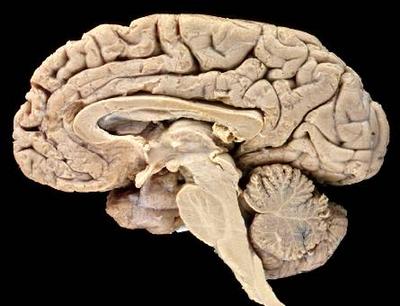DE ADMINISTRANDO INFERIO

Proving Fallmerayer wrong for the umpteenth time, it cannot be denied that modern Greeks are descended of the ancients. This can be proven not only linguistically but anthropologically as well. The Greek perception of justice in the popular consciousness for example, has not progressed much since the days of Socrates, when it was expected that with a fervent belief in the justice of one's case, one would stand up and speak the truth before one's peers, confident that the truth would move them and award him justice. The Apology then, as immortalized by Plato's recording or construction of Socrates' own, is well entrenched in the Greek psyche and I see this in my law practice every day, especially amongst first generation migrants who cannot identify the Anglo-Saxon legal system of this country as a system of arbitration as carefully defined and adversarial as the rules of a cricket game, but rather, believe that if afforded the opportunity, they would stand up before the judge, «θα τα πω όλα στο δικαστή,» who will immediately identify the justice of their case and award an appropriate remedy. Even when such persons are victorious, they come away from the law courts mystified at the fact that their desire to emulate the great ancient forensic lawyer Lysias and declaim to their heart's content was pipped at the post when their barrister's over was over, and the opposing barrister called in to try to demolish the stumps of their argument.
Something similarly Lysianic occurs in our treatment of our own ethnic issues. In our belief, we are the victims of foreign indifference and the evil slander of our enemies. If only we could sit down with the leaders of the world for five minutes and present them the true facts, or as one recently formed ethnic-issue body calls it, the "Hellenic Truth." This will disabuse them of their illusions and like the Anglo-Saxon judge above, will move them to finally, after so many years of heartache, award our people their just desserts. This type of philosophy was the driving force behind the Greek government publishing books in the English language about the Macedonian issue in the early nineties. One of these has made its way into my local library. Predictably enough, it has never been borrowed.
The fact of the matter is that Realpolitik is eternal and political and financial expediency are the yardstick by which success in international affairs has always been measured. Of course the powers that be understand our arguments about such issues as the Macedonian Issue and the Cyprus Issue. Proof of this is the fact that from time to time, they have supported Greece's stance on them. However honour, truth or justice do not come into the equation. It was the same Britons who encouraged Greece to occupy Smyrna in 1919 that stood idly by in 1922 and refused to save the lives of thousands of Greek refugees from being massacred by the Kemalist army and even poured boiling water over the sides of their ships to prevent them swimming to safety. Today, the same powers that condemned the Turkish invasion of Cyprus advocate a legitimization of the Turkish occupation of the island and send its senators to pay visits there.
As Socrates, whose apology meant nothing in the face of Athenian vested interest and corruption could tell you, justice is a relative commodity. Foreign powers will only intervene to impose 'justice' when they have an interest to do so. A comparison of the speed in which the USA moved to free Kuwait from the invading Iraqi forces, compared to the thirty-one years of foot-dragging inactivity that represents any progress in the Cyprus Issue is a case in point. Another is the recent revelation that the speaker of the American Senate, Dennis Hastert may have accepted bribes by Turkish officials in order to obtain his vote against the Armenian Genocide Resolution and also secure his support of the Turkish position on Cyprus. Even if this proved untrue, it cannot be disputed that not a few states including Turkey do offer better and more tangible incentives to World Powers for adopting their positions, than a barrage of facts and a few hysterical appeals to nobility, justice and Hellenic Truth.
Greeks who wonder why Turkish foreign policy is so successful ought to consider that Turkey now occupies the geographical area known as Asia Minor, which once formed the heartland of the Byzantine Empire and to some extent is an heir to its cultural legacy, especially when it comes to administration. Byzantines running as they were, a multi-ethnic and multi-religious empire surrounded by enemies, soon disabused themselves of the parochial Lysian illusion that truth or justice was at all significant to their neighbours, proving simultaneously that there is absolutely no such thing as the 'Byzantine truth.' Instead, they decided to appeal to the baser instincts of their neighbours’ natures, developing an intricate diplomatic policy predicated upon bribing officials in neighbouring states to promote pro-Byzantine policies, making payments to enemies to keep them at bay, inviting members of royal families to live and be educated in Byzantium so that when they finally returned to their homes they would be friendly towards Byzantium and infused with its culture.
Perhaps the greatest exponent of this policy was the scholarly Emperor Constantine VII Porphyrogenitos, who wrote a remarkable treatise for his son known as De Administrando Imperio (though it originally bore the affectionate title "Προς τον ίδιον υιόν Ρωμανόν" or “To my son Romanos”). This was a manual setting out how to run the Empire. It described in intricate detail both the enemies and friends of Byzantium while also providing valuable information as to the customs of various nations. It reads like a snapshot of foreign policy in time. One major theme of the work is the idea that various enemies can be manipulated or bribed to fight each other, rather than use imperial resources to wage war against them. Simply put, this work is an early "How to subvert your enemies and influence people" handbook. That this policy was not without some results can be proven by the fact that Byzanitum was able to last, in some shape or form for another five hundred years after its compilation and arguably only entered its terminal decline, after the gold ran out.
Given then that a culture of individualism pervades the current world and it should taken as a given that no one will go out of their way for you without this being to their benefit, there is nothing intrinsically wrong in providing someone with an incentive to view things from your point of view. After all, the presence of some gold or silver in one's hand has been proven to stimulate the flow of chi to the brain and result in clarity of thought. Further, if the most pious Byzantine Emperors sought fit to make use of such expedients to ensure the ascendancy of their Empire, what is wrong in us following suit. Slavish imitation of ancient and out moded ways of thinking can only lead to unhappiness. Look at the Spartans at Thermopylae for instance. Had they not been so stubborn and provided the Persians with the paltry bribe of earth and water demanded of them, they would have lived happy and full lives and the world would have been saved from a particularly depressing Cavafy poem and the nauseating syncretism of the Hellenistic era. Further, did not Australia act similarly in 'assisting' the Nauru government to keep asylum seekers on that island?
All this then should be taken into account when we assess our modus operandi for dealing with the latest assualt upon our ethnic pride and justice - the suggestion that the illegal and criminal occupation regime in the north of Cyprus will be permitted to participate in the Commonwealth Games under its own flag, masquerading as the so-called "Turkish Republic of Northern Cyprus." For it is obvious that patriotic appeals to justice, lengthy expositions of facts or protest marches that are shrugged off by the mainstream as further instances of the failure of multiculturalism to ensure a homogenous and cohesive community are ineffective. How then to ensure that the heinous legitimisation of the illegal occupier does not occur? How about a souvlaki-night at the Greek Consul's house or free tickets for every MP to a South Melbourne match? We could even get every president of every Greek and Cypriot organisation to invite every MP to dinner. The only problem there of course will be that there will not be enough MP's to go around. We could even do a Porphyrogenitos and whip off a backhand, inverse bribe in the form of a mass-boycott of the Comonwealth Games… that is, if we consider ourselves as a community at all capable of unified action.
Seriously though, do we really need to resort to such base tactics in order to achieve justice? After all, this is the land of the 'fair-go' and the Australian government has traditionally been extremely sympathetic and accomodating with regards to the Cyprus issue. Infused with the Whitlamist Truth of the Matter, it will never betray us in this way. And if it does, well then we shall just have to march down to Parliament House and explain the history to them again and again and again……
DEAN KALIMNIOU
kalymnios@hotmail.com




